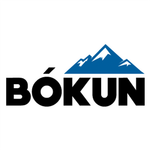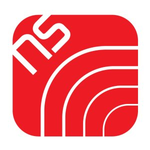Description

Axis Softech Travel

Travelopro
Comprehensive Overview: Axis Softech Travel vs Travelopro
Axis Softech and Travelopro are both companies that offer software solutions for the travel industry. They target travel agencies, tour operators, and other travel-related businesses with technology that helps streamline operations, enhance customer experience, and increase sales. Below is an overview of their primary functions, target markets, market share, user base, and key differentiating factors:
a) Primary Functions and Target Markets
Axis Softech Travel
- Primary Functions: Axis Softech provides comprehensive travel management software that includes features like online booking systems, B2B and B2C booking portals, dynamic packaging solutions, and API integrations. Their technology supports flight, hotel, and vacation bookings, as well as cab services, and they offer CRM and back-office management tools.
- Target Markets: Their primary markets are travel agencies, travel management companies, and tourism enterprises seeking to automate and enhance their service offerings. They often target medium to large-sized enterprises in both domestic and international markets.
Travelopro
- Primary Functions: Travelopro specializes in a wide range of travel technology solutions, including flight and hotel reservation systems, travel API integrations, and a white-label travel portal offering. They focus on helping businesses create custom travel booking solutions tailored to specific business needs.
- Target Markets: Similar to Axis Softech, Travelopro targets travel agencies, tour operators, and online travel agents around the globe. They cater to businesses of varying sizes, focusing on those looking for customized and flexible software solutions.
b) Market Share and User Base
-
Axis Softech: As a leading player in the travel technology space in India, Axis Softech has built a solid reputation. While specific market share data isn't widely published, the company is considered a significant player in its niche, primarily within the Indian subcontinent. Its user base primarily consists of regional travel agencies and tour operators.
-
Travelopro: Travelopro has a more global presence compared to Axis Softech, serving clients in numerous countries. The company is competitive in the international market, where it taps into varying markets across continents. It aims to capture a share of small to large enterprises seeking a global reach.
c) Key Differentiating Factors
-
Geographic Focus:
- Axis Softech: Primarily focused on the Indian and South Asian travel markets, with solutions that cater uniquely to the needs of this region.
- Travelopro: Has a broader international focus, offering products and services tailored for a wider array of global markets.
-
Customization and Flexibility:
- Axis Softech: Provides a range of products that might suit businesses seeking standardized solutions with the option for some level of customization.
- Travelopro: Known for its strong emphasis on customizable solutions, Travelopro allows for significant tailoring of its products to meet individual business needs, making it more flexible for users with specific requirements.
-
Integration and APIs:
- Axis Softech: Offers robust API integration capabilities but might focus on regional and specific airline or hotel APIs.
- Travelopro: Provides extensive API and GDS (Global Distribution Systems) integration, catering to a dynamic global client base needing diverse and multiple source inputs.
-
Technology and Innovation:
- Axis Softech: Known for solid technological infrastructure aimed at reliability and efficiency in regional contexts.
- Travelopro: May push more towards innovative features and advanced system options with a tech-savvy approach to attract tech-forward companies globally.
In conclusion, both Axis Softech and Travelopro offer valuable solutions to the travel industry, with each having its strengths suited to different markets and customer needs. Their primary differences lie in geographic reach, customization capacity, and specific technology focus, which can influence a prospective client's choice depending on their business context and goals.
Contact Info

Year founded :
Not Available
Not Available
Not Available
Not Available
Not Available

Year founded :
Not Available
+91 63146 07811
Not Available
India
http://www.linkedin.com/company/travelopro
Feature Similarity Breakdown: Axis Softech Travel, Travelopro
To provide a detailed similarity breakdown for Axis Softech Travel and Travelopro, I will address the aspects you've specified:
a) Core Features in Common
Both Axis Softech Travel and Travelopro are travel technology solution providers, and they offer several core features common among travel platforms:
-
Booking Engines: Both platforms provide booking engines for airlines, hotels, car rentals, and holiday packages, catering to B2B, B2C, and B2B2C segments.
-
Third-Party API Integration: They support integration with various Global Distribution Systems (GDS) and APIs, allowing travel agencies to access a wide range of travel inventory.
-
Content Management Systems (CMS): Both offer CMS capabilities to manage content, ensuring that travel agencies can keep their offerings updated.
-
Payment Gateway Integration: They provide integration with multiple payment gateways to facilitate seamless transactions.
-
Multi-Currency and Multi-Language Support: These platforms support multiple currencies and languages to cater to a global market.
-
Mobile Compatibility: Both solutions are accessible via mobile devices, either through responsive web design or dedicated mobile applications.
b) User Interface Comparison
While the specific details of user interfaces can vary and are subject to updates, here are some general observations:
-
Design and Usability: Both platforms typically aim for a user-friendly interface designed to make the booking process straightforward for both travel agents and customers. However, the design aesthetic may differ based on branding choices.
-
Customization: Travelopro often emphasizes customization flexibility, allowing users to tailor the interface according to their brand needs. Axis Softech also offers customization, but the extent to which users can modify the interface might differ.
-
Navigation: Ease of navigation is key to both platforms, with streamlined booking flows and intuitive dashboards for managing travel bookings and customer interactions.
c) Unique Features
While there is significant overlap, each product may have unique features or strengths:
- Axis Softech Travel:
- White Label Solutions: They extensively promote white label offerings which allow travel agencies to launch a branded platform without the complexities of building from scratch.
- Project-Specific Customization: Axis Softech offers more project-specific customization, tailoring solutions based on detailed client requirements.
- Travelopro:
- Ancillary Services: Travelopro often includes additional ancillary services like travel insurance, transfers, and sightseeing through their network, which might not be as extensive in Axis Softech.
- Travel CRM Features: Offers robust customer relationship management tools that help agencies manage client information and communication effectively.
Each provider generally caters to different niches and client requirements, with focal points varying based on their service approach. However, for precise and most up-to-date feature differences, one should review the latest platform updates or reach out to the providers directly, as features can evolve over time.
Features

Not Available

Not Available
Best Fit Use Cases: Axis Softech Travel, Travelopro
Axis Softech Travel and Travelopro are both providers of travel technology solutions, but they each have their own strengths and are best suited for different types of businesses and projects. Here's a breakdown of the best fit use cases for each:
Axis Softech Travel
a) Ideal Businesses or Projects:
-
Small to Medium Travel Agencies: Axis Softech Travel is well-suited for small to medium-sized travel agencies that require a comprehensive suite of tools to manage their operations efficiently. The platform offers custom travel software solutions that can be tailored to specific business needs, making it ideal for agencies that require flexibility.
-
Tour Operators and DMCs (Destination Management Companies): The platform provides specialized features and modules that cater to tour operators and DMCs. It allows businesses to create, manage, and market travel packages effectively.
-
Travel Startups: For travel startups looking for cost-effective solutions to kickstart their business with digital tools, Axis Softech can provide the necessary infrastructure to develop online booking systems and other essential services.
d) Industry Verticals and Company Sizes:
- Industry Verticals: Focuses primarily on travel agencies, tour operators, and DMCs. It provides industry-specific features like dynamic packaging, API integration with GDSs, and B2B/B2C booking engines.
- Company Sizes: Best suited for small to mid-sized enterprises (SMEs) where customization and cost-effectiveness are key.
Travelopro
b) Preferred Scenarios:
-
Large Travel Corporations: Travelopro is often the preferred choice for large-scale travel businesses and corporations due to its robust platform that can handle high volumes of transactions and bookings seamlessly.
-
Corporate Travel Management Companies: Businesses specializing in corporate travel management find Travelopro's solutions appealing as they offer comprehensive travel management tools, including reporting and expense management systems.
-
Online Travel Agencies (OTAs): Travelopro supports OTAs with advanced technological infrastructure and modules that enhance the customer booking experience, including multi-language and multi-currency features.
-
Integration with Multiple Suppliers: If a business requires extensive integration capabilities with multiple Global Distribution Systems (GDSs) and third-party suppliers, Travelopro's platform architecture supports such needs efficiently.
d) Industry Verticals and Company Sizes:
- Industry Verticals: Caters to a wide range of travel industry verticals, including OTAs, corporate travel management, B2B travel companies, and more. It delivers modules that fit into various segments like flights, hotels, car rentals, and holiday packages.
- Company Sizes: Primarily targets medium to large enterprises that require scalable and integrated solutions to manage complex and high-volume operations.
Both Axis Softech Travel and Travelopro offer valuable solutions, but the choice between them depends largely on the size of the business, specific business needs, and the level of complexity required in their travel management systems.
Pricing

Pricing Not Available

Pricing Not Available
Metrics History
Metrics History
Comparing undefined across companies
Conclusion & Final Verdict: Axis Softech Travel vs Travelopro
To provide a conclusion and final verdict for Axis Softech Travel and Travelopro, we need to consider various factors such as functionality, pricing, customer support, ease of use, and flexibility.
a) Best Overall Value
Travelopro typically offers the best overall value. It is often praised for its comprehensive suite of features, flexibility, and integration capabilities. It caters to a wider range of travel services and provides robust support for both large and small travel agencies.
b) Pros and Cons
Axis Softech Travel:
Pros:
- Customizable solutions tailored to the specific needs of travel agencies.
- Strong local support, which might be beneficial for agencies operating in specific regions.
- Suitable for agencies focusing on niche markets with specific requirements.
Cons:
- Can be more expensive, particularly for smaller agencies with limited budgets.
- Sometimes lacks the integration capabilities that larger agencies may require.
- May require more time for implementation due to customization processes.
Travelopro:
Pros:
- Offers a diverse range of features covering flights, hotels, car rentals, and more.
- Seamless integration with third-party APIs and global distribution systems (GDS).
- Scalable solutions suitable for growing businesses.
Cons:
- May have a steeper learning curve due to its extensive features.
- Support response times can vary, particularly during peak periods.
- Customization can be limited compared to highly bespoke solutions.
c) Recommendations
-
Business Size and Needs: If you are a small to medium-sized agency with a focus on a broader spectrum of travel services, Travelopro may offer a more scalable and cost-efficient solution. Larger agencies looking for specific, niche features might benefit more from Axis Softech Travel’s customizable offerings.
-
Budget Considerations: Travelopro generally offers more competitive pricing, which might be more appealing for agencies with tighter budgets. Axis Softech might incur higher upfront costs due to its customization options.
-
Integration Requirements: Agencies that rely heavily on existing systems and require a seamless integration experience might favor Travelopro for its ease of integrating with third-party services.
-
Local Support Needs: If regional support and service are critical, Axis Softech might hold an advantage, particularly if your operations are localized to areas where they have a strong presence.
In conclusion, both Axis Softech Travel and Travelopro have their strengths and choosing between them depends largely on your agency’s specific needs, budget restrictions, and desired features. Agencies should carefully assess their current operations and future growth plans to determine which product will deliver the best long-term value.




